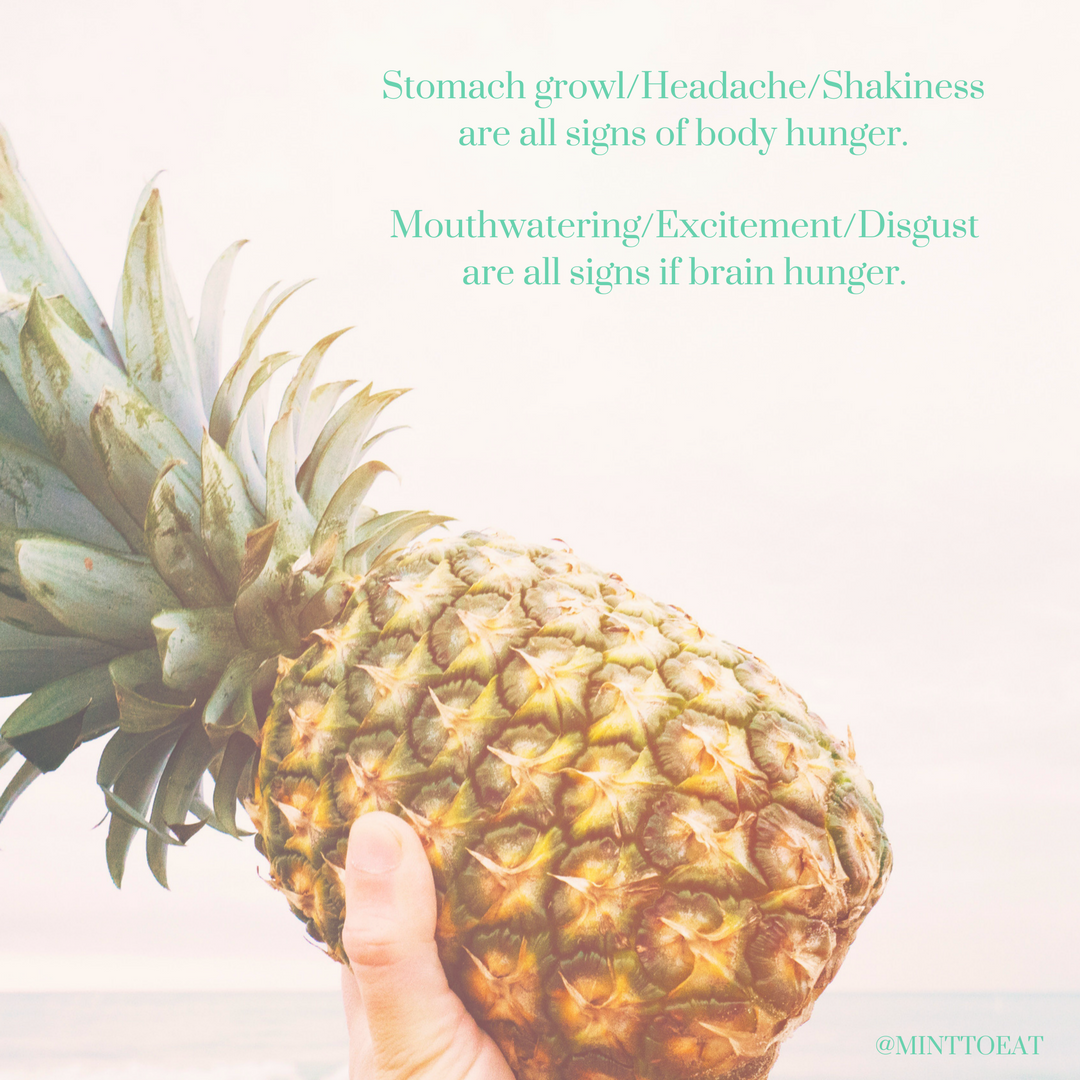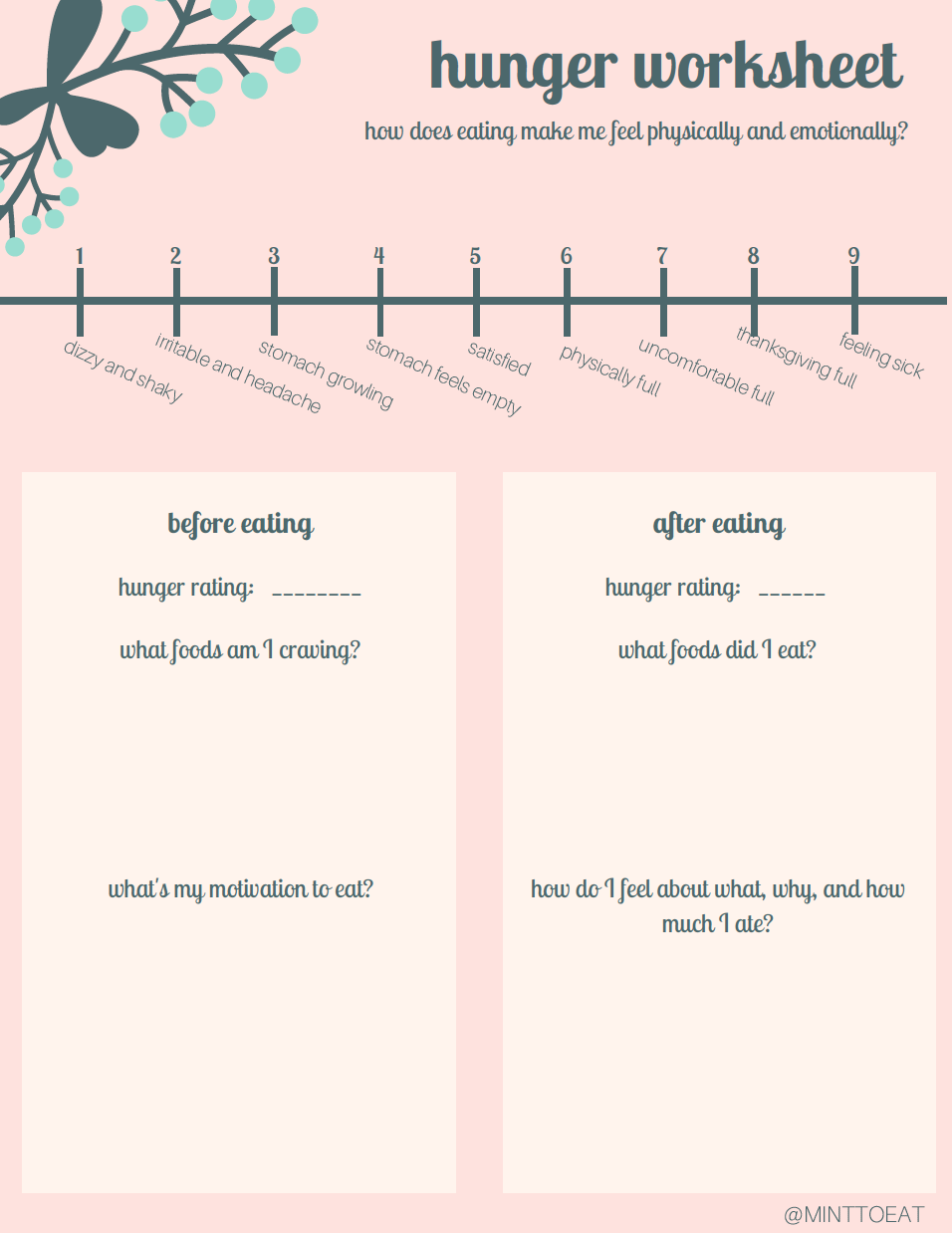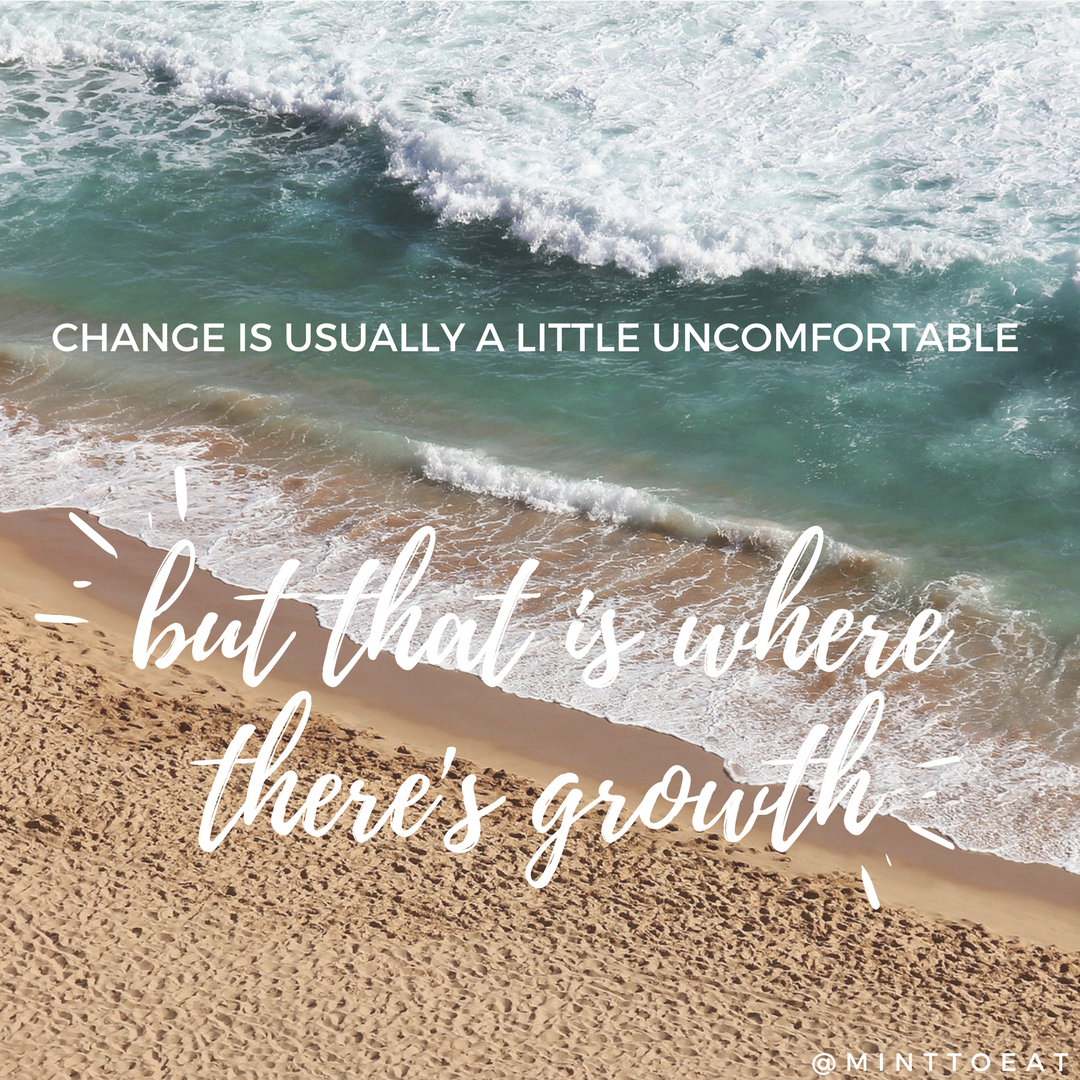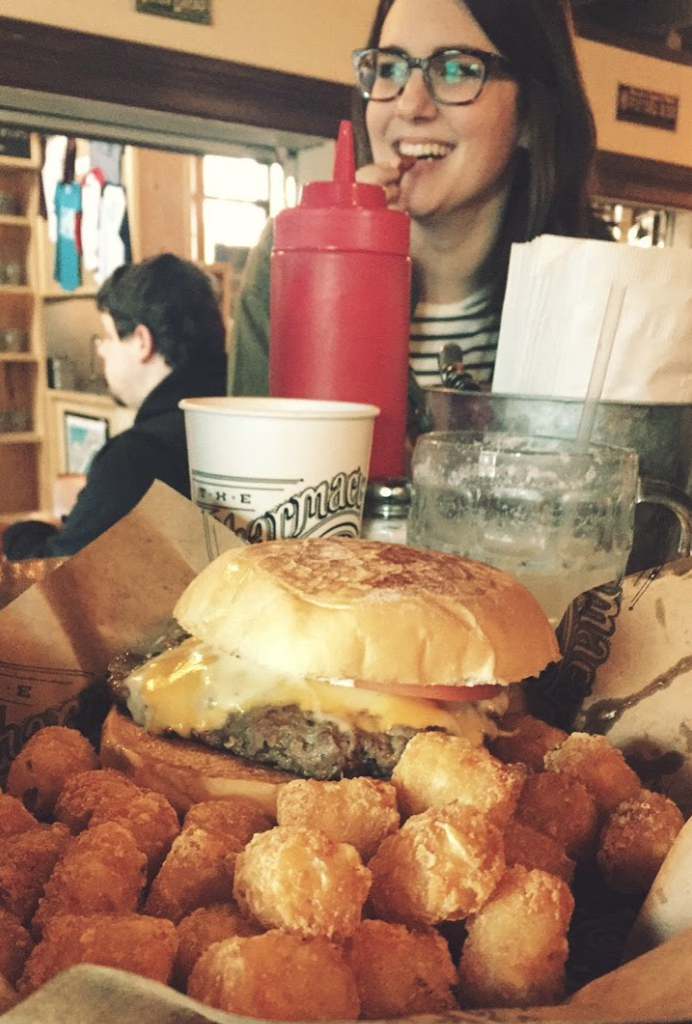body & brain hunger

February 23, 2018
Body hunger is typical hunger, the kind where your stomach growls. Brain hunger deals with the emotions, like cravings and eating for the experience.

Body hunger
Body hunger includes stomach growls, headaches, shakiness, lack of concentration, irritability, and nausea. Without a doubt, find food ASAP once one or more of these symptoms start. Keep in mind, you don’t need these symptoms to occur for permission to eat.
Here’s a downloadable hunger worksheet to help you digest (haha) your hunger. Before and after meals, rate your body hunger on the scale. The sweet spot is somewhere between a 4 and a 6. Pro tip: the point of this scale isn’t to tell you when you can eat and when you can’t eat. It’s to make you more aware of what your body telling you. For example, I have definitely been a 7 on the scale and still said yes to dessert. It’s okay to eat when you are not hungry – intuitive eating is more than just body hunger. It’s recognizing the emotions and cravings that your brain is telling you to.

hunger worksheet, click the link above to download!
Brain hunger
Brain hunger is more about emotions and cravings. It’s everything that goes into why and what you eat.
Your motivation to eat is the “why” you are eating. Remember, it’s okay to eat if you aren’t hungry. Maybe your 6-hour shift is coming up so you’re eating to prevent hunger in the middle of your shift. Maybe you’re full, but your roommate just made fresh and hot cookies (I would sincerely hope you take her up on one of those cookies). Maybe you’re getting a little hangry so you eat. Maybe you just had a breakup and Ben & Jerry’s is calling your name. All of these motivations to eat are okay.
Cravings are the power behind “what” you eat. Give yourself permission to eat. And eat whatever will be most satisfying. It can be challenging because up to this point the focus was on self-control, not hunger cues. With that being said, at the beginning of intuitive eating, you may overeat. That is okay!!
Let’s say for example you recently said buh-bye to dieting. Now no foods are off limits, so you decide to make some cookie dough (because why not?). You’ve been deprived for so long, you overeat about the whole bowl of cookie dough. You probably won’t feel so hot afterward (maybe an 8 on the scale). You acknowledge your physical and emotional feelings, reaffirm yourself that no foods are bad, let go of any guilt, and you move on with your day. Flash forward to the next time you’re around cookie dough — it’s not an off-limits food and you remember how that 8 on the hunger scale felt. You are now able to eat a couple spoonfuls and be satisfied (woohoo, at a 5!). In actuality, it will take months to be that completely comfortable with intuitive eating. Don’t give up hope, change is usually a little uncomfortable – but that’s where there is growth.

Eat what you want to eat. A diet based on moderation will feel best. It’s about finding a balance between what sounds good and what feels good. Personally, a meal with grilled chicken and steamed vegetables may feel good, but it doesn’t always sound good. Whereas a large tater tot and double cheeseburger sounds good, but doesn’t always feel good.

Lastly, it’s perfectly healthy to eat to fulfill emotional needs. A cheesy pizza dinner might be precisely what you need after a long, hard day. A round of fun cocktails might be the best way to celebrate a promotion. Eating to cope with emotional needs is healthy, just as long as it’s not your only way to cope. Other ways to cope include talking with friends or a counselor, going on a run, painting, listening to music, taking a hot shower, or journaling.
You see, body and brain hunger are equally important when it comes to being a healthy eater. Healthy eaters honor physical and emotional hunger needs, which is what intuitive eating is all about. Intuitive eating has given me food and body peace. I want that for you. So, if you’re ready, I’d recommend downloading my hunger worksheet. Before meals, explore your different body and brain hunger cues. After meals, process your fullness and satisfaction. Practice, practice, practice…and before you know it, you’ll be an intuitive (& healthy) eater.